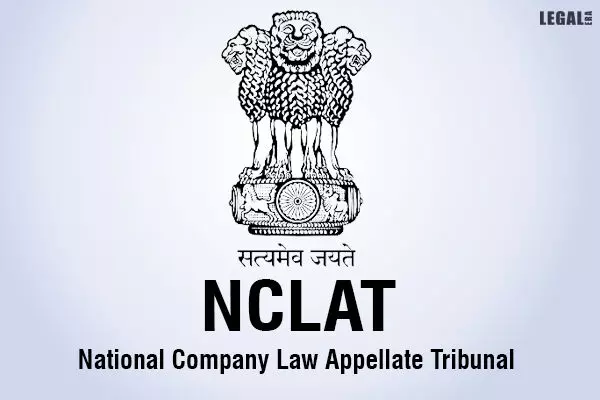- Home
- News
- Articles+
- Aerospace
- Artificial Intelligence
- Agriculture
- Alternate Dispute Resolution
- Arbitration & Mediation
- Banking and Finance
- Bankruptcy
- Book Review
- Bribery & Corruption
- Commercial Litigation
- Competition Law
- Conference Reports
- Consumer Products
- Contract
- Corporate Governance
- Corporate Law
- Covid-19
- Cryptocurrency
- Cybersecurity
- Data Protection
- Defence
- Digital Economy
- E-commerce
- Employment Law
- Energy and Natural Resources
- Entertainment and Sports Law
- Environmental Law
- Environmental, Social, and Governance
- Foreign Direct Investment
- Food and Beverage
- Gaming
- Health Care
- IBC Diaries
- In Focus
- Inclusion & Diversity
- Insurance Law
- Intellectual Property
- International Law
- IP & Tech Era
- Know the Law
- Labour Laws
- Law & Policy and Regulation
- Litigation
- Litigation Funding
- Manufacturing
- Mergers & Acquisitions
- NFTs
- Privacy
- Private Equity
- Project Finance
- Real Estate
- Risk and Compliance
- Student Corner
- Take On Board
- Tax
- Technology Media and Telecom
- Tributes
- Viewpoint
- Zoom In
- Law Firms
- In-House
- Rankings
- E-Magazine
- Legal Era TV
- Events
- Middle East
- Africa
- News
- Articles
- Aerospace
- Artificial Intelligence
- Agriculture
- Alternate Dispute Resolution
- Arbitration & Mediation
- Banking and Finance
- Bankruptcy
- Book Review
- Bribery & Corruption
- Commercial Litigation
- Competition Law
- Conference Reports
- Consumer Products
- Contract
- Corporate Governance
- Corporate Law
- Covid-19
- Cryptocurrency
- Cybersecurity
- Data Protection
- Defence
- Digital Economy
- E-commerce
- Employment Law
- Energy and Natural Resources
- Entertainment and Sports Law
- Environmental Law
- Environmental, Social, and Governance
- Foreign Direct Investment
- Food and Beverage
- Gaming
- Health Care
- IBC Diaries
- In Focus
- Inclusion & Diversity
- Insurance Law
- Intellectual Property
- International Law
- IP & Tech Era
- Know the Law
- Labour Laws
- Law & Policy and Regulation
- Litigation
- Litigation Funding
- Manufacturing
- Mergers & Acquisitions
- NFTs
- Privacy
- Private Equity
- Project Finance
- Real Estate
- Risk and Compliance
- Student Corner
- Take On Board
- Tax
- Technology Media and Telecom
- Tributes
- Viewpoint
- Zoom In
- Law Firms
- In-House
- Rankings
- E-Magazine
- Legal Era TV
- Events
- Middle East
- Africa
NCLAT Delhi: Replacement Of RP Beyond Section 27 Is Subject To NCLT Findings On Conduct Or Proven Fact

NCLAT Delhi: Replacement Of RP Beyond Section 27 Is Subject To NCLT Findings On Conduct Or Proven Fact
The National Company Law Appellate Tribunal (NCLAT) Delhi bench, comprising Justice Ashok Bhushan (Chairperson), Mr. Barun Mitra (Technical Member), and Mr. Arun Baroka (Technical Member), has determined that an application requesting the replacement of a Resolution Professional (RP), even if not filed under Section 27 of the Insolvency and Bankruptcy Code (IBC), may be considered if the NCLT has made a determination regarding the conduct of the Resolution Professional or if there is substantiated evidence present.
The NCLAT affirmed the dismissal of a petition submitted by a minority shareholder of the corporate debtor, which aimed to replace the RP based solely on unsubstantiated claims.
The NCLT admitted Ansal Urban Condominiums Pvt. Ltd. (corporate debtor) into the Corporate Insolvency Resolution Process (CIRP), with Mr. Rajesh Ramnani appointed as the RP.
Katra Realtors Pvt. Ltd. (Appellant), a minority shareholder with an 8.785% stake in the corporate debtor, filed a petition with the NCLT requesting the substitution of the RP, accusing the RP of partiality and misconduct.
On 24th January, 2024, the NCLT noted that, according to Section 27 of the IBC, the replacement of a resolution professional can be carried out by the Committee of Creditors ("CoC") through a resolution with a 66% voting share. However, the appellant, being a shareholder and not a member of the CoC, lacks the standing to request the replacement of the Resolution Professional. Therefore, the NCLT dismissed the application for contravening the provisions of the IBC.
The appellant lodged an appeal with the NCLAT challenging the NCLT's order dated 24th January, 2024. The resolution professional contended that the appellant's affiliated company had already submitted an application contesting transactions and the acceptance of claims, which is currently awaiting adjudication. Additionally, the resolution professional asserted that the appellant filed the application solely to impede the progress of the Corporate Insolvency Resolution Process (CIRP).
The bench held that the adjudicating authority did not err in rejecting the application filed by the appellant. The court emphasized that any application seeking replacement or modification of a process under Section 27 can only be entertained if there are findings regarding the conduct of the resolution professional by the adjudicating authority or if there are proven facts presented. Mere allegations made by the applicant are not sufficient grounds for the adjudicating authority to conduct an inquiry or decide on the application.
The court further stated that no error was committed by the adjudicating authority in rejecting the application. Ultimately, the court dismissed the appeal, affirming the decision of the adjudicating authority.



